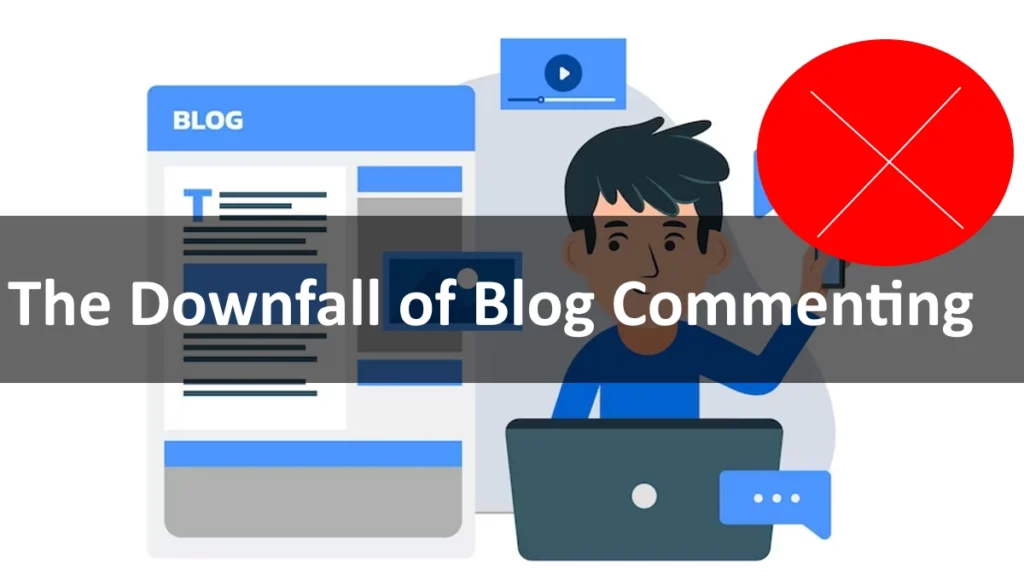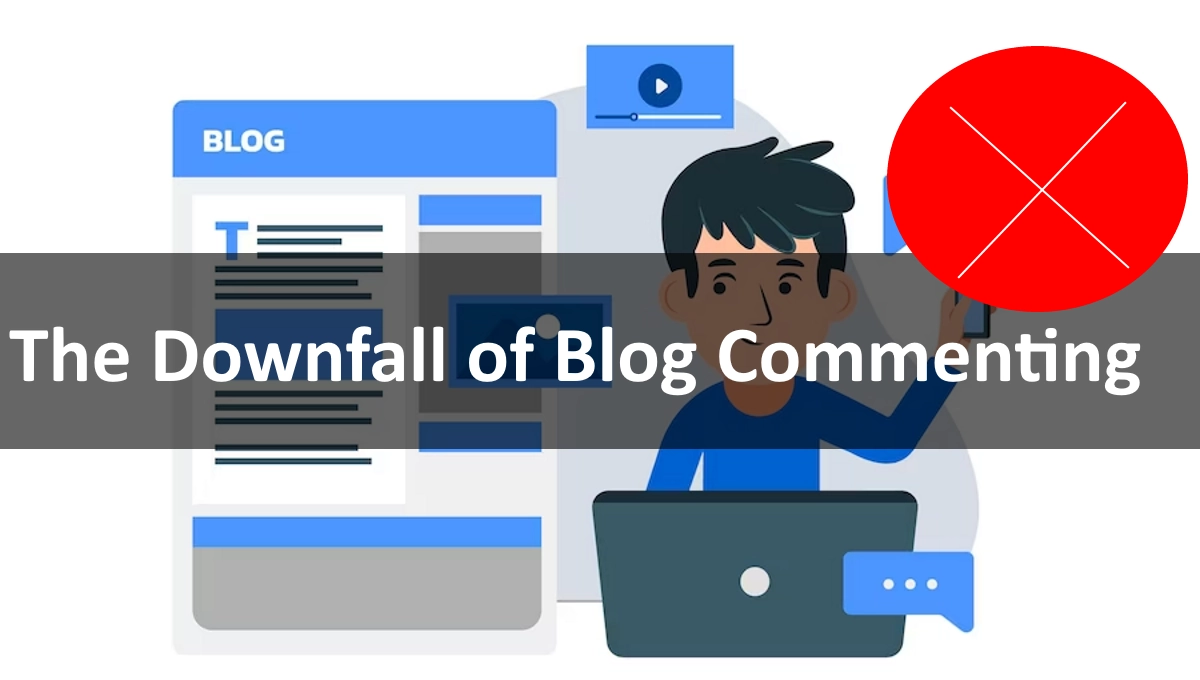Blog commenting has been a popular strategy for building backlinks and increasing website traffic for many years. However, over time, blog commenting has become less effective and even harmful to your website’s SEO. In this article, we’ll explore why blog commenting is not so good and what you can do instead.

Table of Contents
Introduction
Blog commenting is the practice of leaving a comment on someone else’s blog post. The comment usually includes a link back to your website, which can help to increase traffic and improve your search engine rankings. However, blog commenting is not as effective as it used to be.
What is Blog Commenting?
Blog commenting is a way to interact with other bloggers by leaving comments on their blog posts. The statement usually includes your name, email address, website URL, and comment. Some bloggers allow do-follow links, which means that search engines will follow the link back to your website and give you credit for the backlink.
The Benefits of Blog Commenting
Blog commenting can have several benefits, including:

Building Relationships
Leaving a thoughtful comment on someone else’s blog post can help to build a relationship with that blogger. This can lead to opportunities for guest posting, collaborations, and other partnerships.
Building Backlinks
Blog commenting can also help to build backlinks to your website. Backlinks are crucial for SEO since they show search engines that other websites regard your material as trustworthy by linking to it.
Increasing Traffic
Finally, blog commenting can help to increase traffic to your website. If your comment is relevant and adds value to the conversation, other readers may click on your link to learn more about you and your website.
The Negative Side of Blog Commenting
While blog commenting can have benefits, there are also some negatives to consider.
Spam Comments
One of the biggest problems with blog commenting is spam comments. These are comments that are not relevant to the blog post and are only there to promote the commenter’s website or product. Spam comments can hurt your website’s SEO and reputation.
Low-Quality Comments
Another problem with blog commenting is low-quality comments. These are comments that add little value to the conversation and are often generic or vague. Low-quality comments can hurt your website’s reputation and discourage other readers from engaging with your content.
Time-Consuming
Finally, leaving comments on blogs might take a lot of time. It takes time to read the blog post, write a thoughtful comment, and engage with other readers. If you’re not careful, blog commenting can become a time sink that takes away from other important tasks.
Why Blog Commenting is Not So Good
Now that we’ve looked at the benefits and negatives of blog commenting, let’s explore why it’s not so good.
Negative Impact on SEO
One of the biggest reasons why blog commenting is not so good is that it can have a negative impact on your website’s SEO. Google and other search engines have cracked down on low-quality backlinks, and blog comments are often seen as a way to manipulate search engine rankings. If you’re not careful, blog commenting can hurt your website’s SEO
The Decline in Blog Comments
Another reason why blog-commenting is not so good is that there has been a decline in the number of blog comments. Many bloggers have disabled comments on their blogs due to the rise of social media and other communication channels. This means that your comments may not get as much visibility as they used to.
Alternatives to Blog Commenting
Instead of relying on blog-commenting, there are several alternatives that you can use to improve your website’s SEO and build relationships with other bloggers.
Guest Posting
One alternative is guest posting. Writing a blog article for a different website in your niche is required. Guest posting can help to build backlinks, increase traffic, and improve your search engine rankings.
Social Media
Another alternative is social media. Social media platforms like Twitter, Facebook, and LinkedIn can be great for building relationships with other bloggers and promoting your content.
Forums and Communities
Finally, forums and online communities can be a great way to connect with other bloggers and promote your content. Find forums and communities in your niche and engage with other members.
Conclusion
While blog commenting can have benefits, it’s not as effective as it used to be. Blog commenting can hurt your website’s SEO and reputation, and there are several alternatives that you can use to improve your website’s SEO and build relationships with other bloggers. Consider guest posting, social media, and online communities as alternatives to blog commenting.
Also, you can read more about
- Company Setup in Australia 8 Best Ways for Newcomers
- Deleting a User in Azure Active Directory: A Step-by-Step Guide
FAQs
Can blog commenting still help with SEO?
Blog commenting can still help with SEO, but it’s not as effective as it used to be. If you’re going to comment on blogs, make sure your comments are relevant and add value to the conversation.
How can I avoid spam comments?
To avoid spam comments, make sure your comments are relevant and add value to the conversation. Avoid using generic or vague comments that don’t contribute to the discussion.
Should I still leave comments on other blogs?
Yes, leaving comments on other blogs can still be a great way to build relationships with other bloggers. Just make sure your comments are thoughtful and add value to the conversation.
How can I find forums and online communities in my niche?
You can find forums and online communities in your niche by doing a Google search or by asking other bloggers in your niche for recommendations.
Is guest posting a good alternative to blog commenting?
Yes, guest posting can be a great alternative to blog commenting. Guest posting can help to build backlinks, increase traffic, and improve your search engine rankings.
Don’t forget to support us by following us on Google News or Returning to the home page TopicsTalk
Join Telegram and WhatsApp for More updates
Follow us on social media




